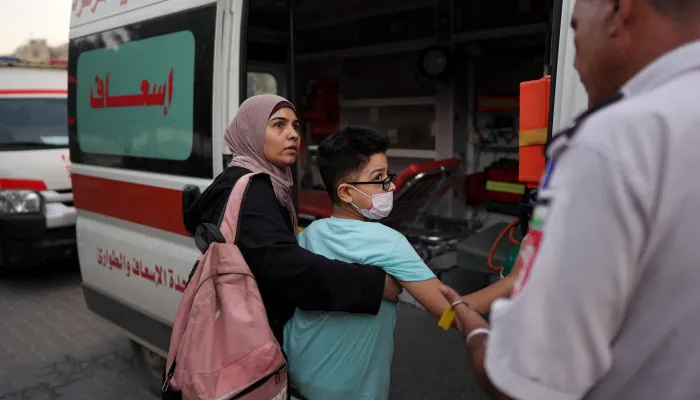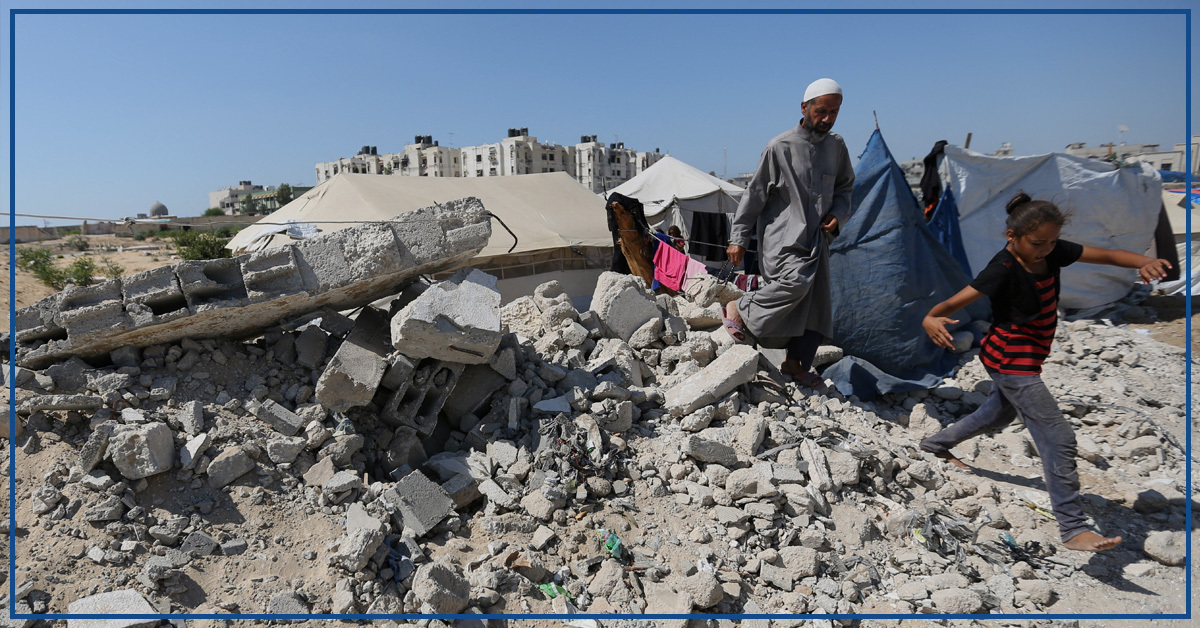A new round of Gaza ceasefire talks commenced on Thursday afternoon in Doha, Qatar, bringing together key international figures, including Israel’s spy chief and his counterparts from the U.S. and Egypt, along with Qatar’s prime minister. The closed-door discussions aim to halt the ongoing conflict in Gaza, where the death toll has tragically exceeded 40,000 people, according to Gaza health officials, after more than ten months of intense fighting.
This latest effort to broker peace and secure the release of 115 Israeli and foreign hostages follows heightened tensions, especially after the assassination of Hamas leader Ismail Haniyeh in Tehran on July 31. The assassination has fueled fears of Iranian retaliation against Israel. With the U.S. having deployed warships, submarines, and warplanes to the region to support Israel and deter potential threats, Washington hopes a ceasefire agreement in Gaza will prevent the conflict from escalating into a broader regional war.
John Kirby, the White House national security spokesperson, confirmed the start of the talks but warned that a resolution was unlikely on Thursday, with negotiations expected to continue into Friday. Another source confirmed the discussions were in progress.
Notably, Hamas officials did not attend Thursday’s meeting, though mediators plan to engage with Hamas’ Doha-based negotiation team afterward. Israel’s delegation includes key figures such as spy chief David Barnea, domestic security service head Ronen Bar, and military hostages chief Nitzan Alon. The U.S. was represented by CIA Director Bill Burns and Middle East envoy Brett McGurk. The meeting was convened by Qatari Prime Minister Sheikh Mohammed bin Abdulrahman Al Thani, with Egyptian intelligence chief Abbas Kamel also in attendance.
While both Israel and Hamas have blamed each other for the lack of progress in previous negotiations, neither side has ruled out the possibility of an agreement. A source from the Israeli delegation indicated that Prime Minister Benjamin Netanyahu has allowed flexibility on several key disputes, including the presence of Israeli troops in Gaza, the sequence of hostage releases, and civilian movement restrictions within the region.

Kirby emphasized that the focus is on narrowing the gaps between the parties and implementing the framework agreement, which has been “generally accepted” by both sides. He expressed cautious optimism, stating, “The remaining obstacles can be overcome, and we must bring this process to a close.”
Hamas, while rejecting U.S. or Israeli influence over Gaza’s post-war future, has indicated willingness to continue negotiations if Israel presents a “serious” proposal. Senior Hamas official Sami Abu Zuhri reiterated the group’s commitment to the negotiation process and urged mediators to secure Israel’s agreement to a proposal from early July, which Hamas claims could end the conflict and calls for a full Israeli withdrawal from Gaza.
Meanwhile, fighting persisted in Gaza, with Israeli forces targeting the southern cities of Rafah and Khan Younis. After months of relentless conflict, which has devastated Gaza and displaced nearly all of its 2.3 million residents, there is a widespread and urgent desire for peace.
In Deir Al-Balah, a central Gaza Strip city where hundreds of thousands have sought refuge, a 30-year-old woman named Aya expressed a desperate longing for an end to the violence. “Enough is enough, we want to get back to our homes in Gaza City. Every hour, a family is killed or a house is bombed,” she told Reuters.
In Tel Aviv, families of some hostages held in Gaza staged a protest outside the headquarters of Netanyahu’s Likud party. Yotam Cohen, whose brother Nimrod is among the hostages, issued a stark message to the negotiators: “If a deal is not signed today or in the coming days at this summit, do not return to Israel. You have no reason to return without a deal.”
The hostages were taken during a Hamas raid on southern Israel on October 7, which resulted in the deaths of around 1,200 people, sparking the current war in Gaza. In a statement issued Wednesday, Hamas and several smaller factions reaffirmed their demands for a ceasefire, an Israeli withdrawal, an end to the siege, the reopening of border crossings, and the reconstruction of Gaza. They also emphasized the need for agreements on releasing both Israeli hostages and Palestinians held in Israeli prisons.
Adding to the gravity of the situation is Iran’s threat of retaliation for the killing of Haniyeh. Senior Iranian officials have indicated that only a ceasefire agreement in Gaza could prevent Iran from directly targeting Israel. Additionally, the potential for escalation from the Iranian-backed Hezbollah movement in southern Lebanon continues to loom over the negotiations.





